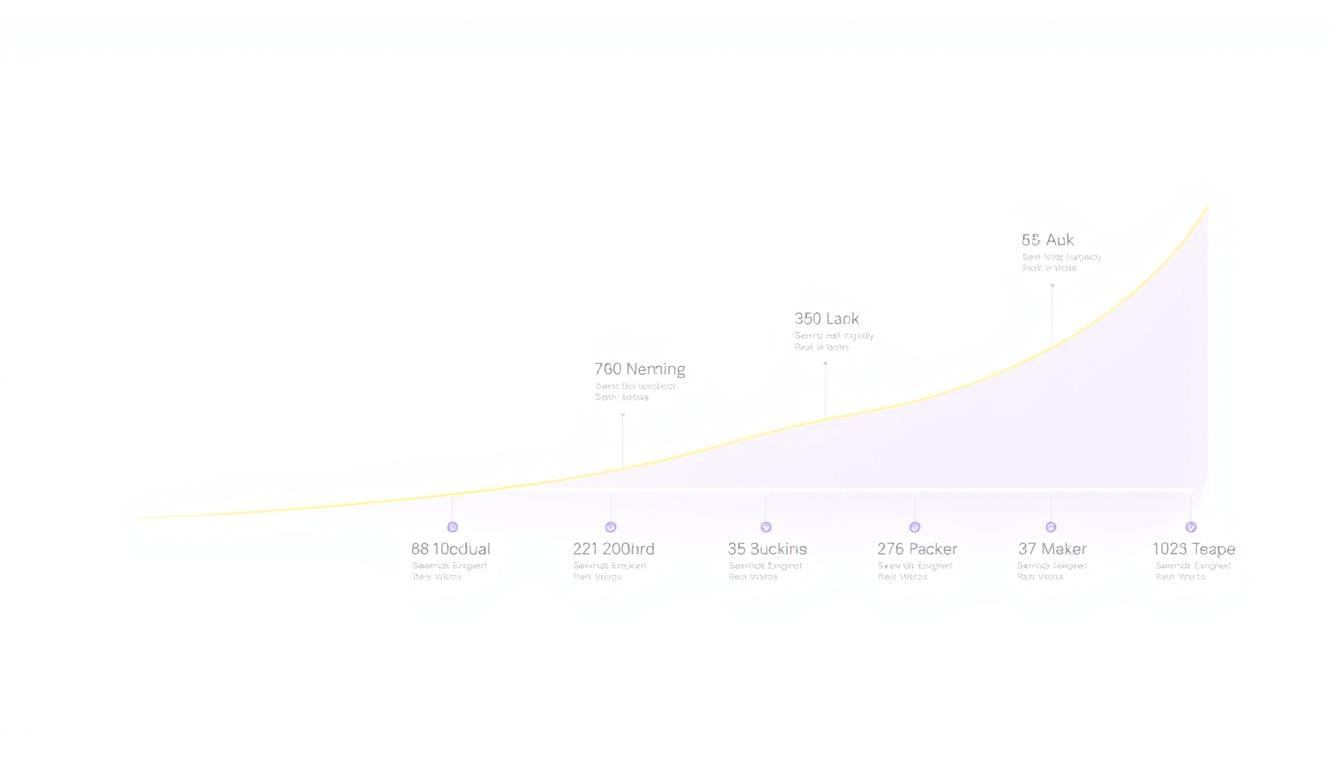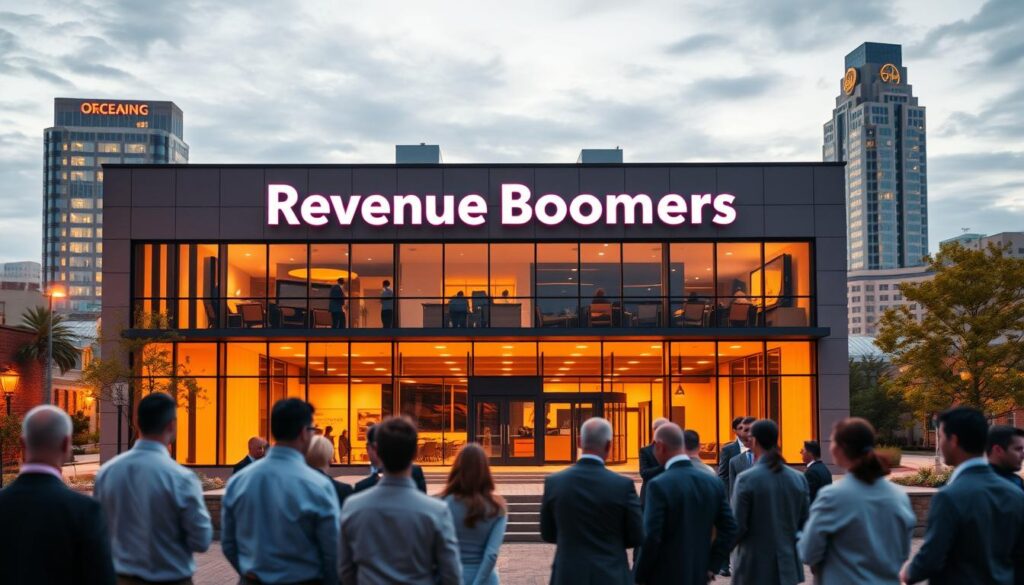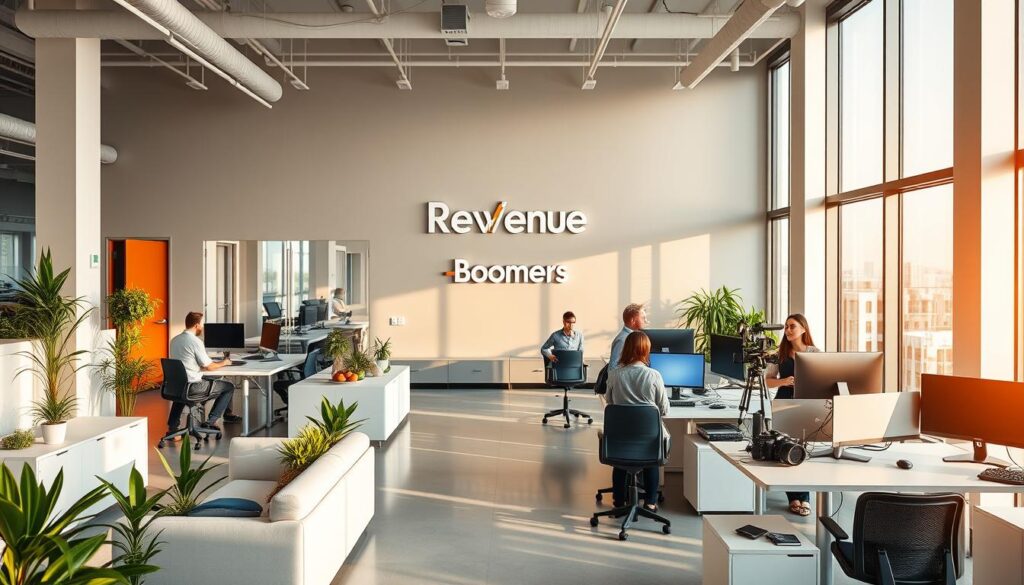Ever wondered why some new websites disappear, while others quickly top search results? Knowing how long it takes for a new site to rank on Google is key. It usually takes 3 to 6 months for a site to get noticeable organic traffic. But, it can take much longer for sites aiming for top keywords.
SEO quality, content relevance, and search engine algorithms all affect your site’s ranking. To learn more, check out this insightful article for realistic expectations and strategies.
Key Takeaways
- Websites often take 3-6 months to gain noticeable traffic.
- Achieving high rankings for competitive keywords can take significantly longer.
- SEO strategies and content quality greatly impact ranking times.
- New sites might experience a ‘Sandbox Effect’ delaying their visibility.
- Backlinks and website authority are crucial for higher rankings.
Understanding the SEO Timeline
SEO is a long-term effort to boost your site’s visibility and ranking on search engines. It’s different from paid ads, which give quick results. To see real progress, you need to be patient, often waiting months. Knowing the timeline helps set realistic goals and plan better strategies.
The Nature of SEO as a Long-Term Strategy
SEO involves many parts that grow over time. Research shows that the top-ranked page on Google is about 950 days old. The second and tenth spots average 850 days and 650 days, respectively. This shows that getting to the top takes a lot of time.
Improving your site’s ranking quickly depends on key factors like domain authority and content quality. Focusing on these can help your site gain traction faster. Learn more about website ranking factors to boost your site’s performance.
Variability in Ranking Times
How long it takes to rank can change a lot. It depends on things like keyword competition and content quality. For instance, only 22% of top search results were made in the last year.
This shows the fierce competition. To see results faster, some focus on less competitive keywords. Search engine algorithms also play a big role, making it crucial to keep updating your strategies. Getting to the top of Google usually takes about 3.39 months. But success also depends on the quality of backlinks and referring domains.
Factors Influencing How Long a New Website Takes to Rank on Google
Knowing what affects a new website’s ranking on Google is key. Many things can speed up or slow down a site’s climb in search rankings. These include the keywords chosen, how competitive the industry is, the quality of the content, how user-friendly the site is, and technical SEO.
Target Keywords and Industry Competition
Choosing the right keywords is crucial for a website’s ranking timeline. Using very competitive keywords can make it take longer to rank well. But, picking less competitive keywords can help a site rank faster.
Research shows that 78% of marketers think keyword research is very important. It helps bring new traffic to their sites.
The Importance of Content Quality
Content quality is the most important factor for Google rankings. Sites with good, engaging, and informative content rank faster. It’s important to use keywords in the right places, like title tags and URLs, to improve SEO.
Google likes original and well-organized content. This is especially true for new sites trying to rank quickly.
User Experience and Technical SEO
User experience affects how a site is seen by visitors and search engines. Things like page speed and mobile-friendliness are important. Technical SEO needs teamwork to improve site structure and optimization.
Google values fast-loading sites that are easy to use. This can really help a site’s ranking.

How Long Does A New Website Take to Rank On Google?
The time it takes for a new website to show up on Google can change a lot. It usually takes a few weeks to a few months for a site to start ranking well. A good SEO plan can help speed up this process and make the site more user-friendly.
Typical Timeframes for Ranking
Here are some stats on when a new website might start ranking:
| Ranking Stage | Timeframe |
|---|---|
| Initial Visibility | 3 to 6 months |
| First Page Ranking | 6 to 12 months (high competition) |
| Strong Presence | 12+ months (consistent updates) |
Websites with great content might see better results in three to six months. But, if the competition is tough, it could take longer.
The Sandbox Effect on New Websites
The Sandbox Effect shows the hurdles new websites face, especially with competitive keywords. It means search engines might rank new sites lower at first. Sites with more website authority get a boost from their history and trust.
Quality backlinks from trusted sites are key in building authority. This helps Google rank sites better.
Essential Website Ranking Factors
Understanding the key website ranking factors is crucial for better search engine results. Google looks at over 200 factors, so focusing on the most important ones is key. These include content quality, backlink strategy, site speed, and mobile-friendliness.
Doing well in these areas can help your site rank higher in search results.
Content Quality and Relevance to User Intent
The content quality of your site is very important for ranking. Search engines look for content that is both high-quality and relevant to what users are searching for. Posts that answer user questions well and provide useful information tend to rank better.
Studies show that top Google results are often long, with around 1,890 words. Keeping your content up-to-date is key to staying relevant and ranking well.
Backlink Strategy and Website Authority
A good backlink strategy is essential for building website authority. Backlinks from trusted sources tell Google your content is reliable and valuable. Sites with many quality backlinks are more visible in search results.
Top-ranking sites usually have high domain authority. You can improve this by networking with authoritative sites in your niche.
Site Speed and Mobile-Friendliness
Site speed is now a big deal for user experience, with Google favoring fast sites. A slow site can scare off users, leading to higher bounce rates and lower rankings. With more people using mobiles, making sure your site works well on mobile is crucial.
Google’s Mobile-Friendly Update, or “Mobilegeddon,” highlights the need for responsive designs. These designs improve user experience on all devices.

Strategies for Accelerating Ranking Potential
To boost a new website’s ranking, focus on a few key areas. Start with targeted keyword research to lay a solid base. Next, make sure the site is easy to use and fun to explore. A strong backlink strategy also helps build trust with search engines.
Effective Keyword Research Techniques
Good keyword research is key to finding the right words to use. Look for specific and less competitive keywords to stand out. Tools that show search volume, competition, and cost-per-click help make your content more relevant. This can lead to better rankings on search engines.
Optimizing User Experience and Technical Factors
Keeping users happy is essential. Your site should be easy to use, work well on mobile, and load fast. Using Google’s Core Web Vitals can make your site perform better. Also, focus on technical SEO like internal linking and updating content regularly. This helps Google understand your site better.
Building a Strong Backlink Profile
A solid backlink profile is crucial for authority. Getting links from trusted sites in your field boosts credibility and tells Google your site is valuable. Try outreach and guest posting to get more backlinks. A good backlink strategy can speed up your rankings and make your site more visible.
Conclusion
Figuring out how long it takes for a new website to rank on Google is complex. It depends on many things like choosing the right keywords, creating quality content, and making sure the site works well. It can take a few minutes or up to 3 to 6 months. During this time, new sites might not show up well in Google, even with great SEO efforts.
Setting realistic goals is key to keep going. It helps stay motivated and focused on the long journey ahead.
When working on making a website better, things like user experience and quality content are very important. How much money you spend on fixing technical issues and creating content also matters. Spending wisely on articles and backlinks can make SEO efforts more effective.
Being patient and keeping at it is crucial. With ongoing improvement and smart strategies, big changes can happen in a year or more. If you need help, working with SEO experts can provide valuable advice. They can help your site grow and become more visible online.






